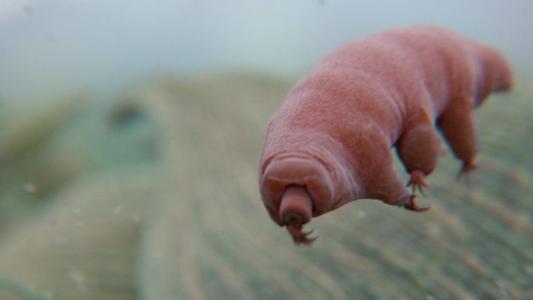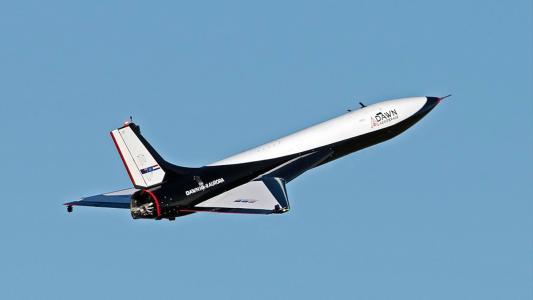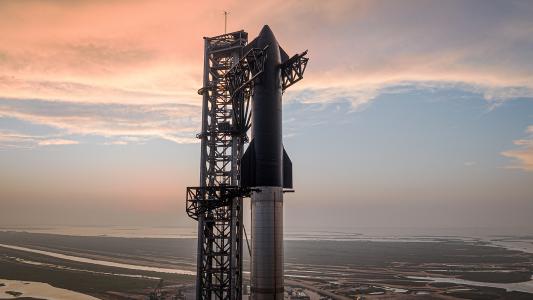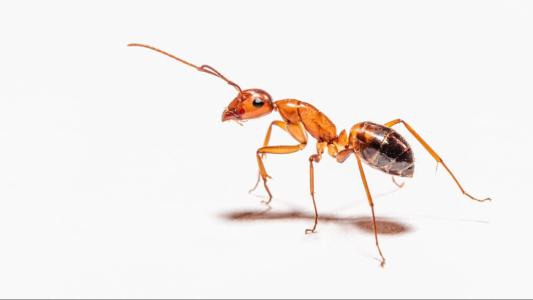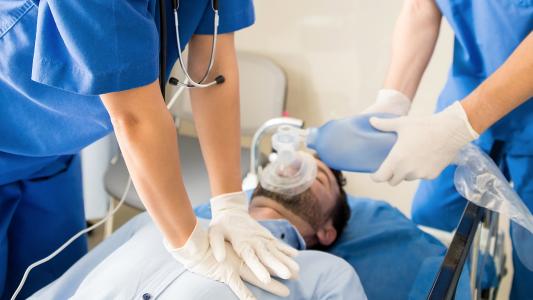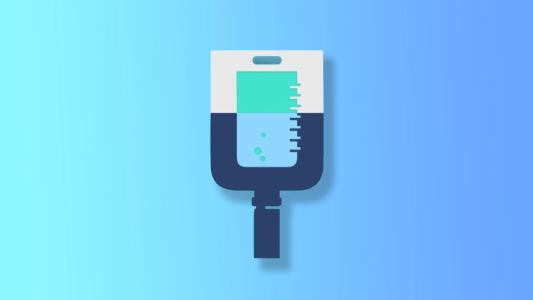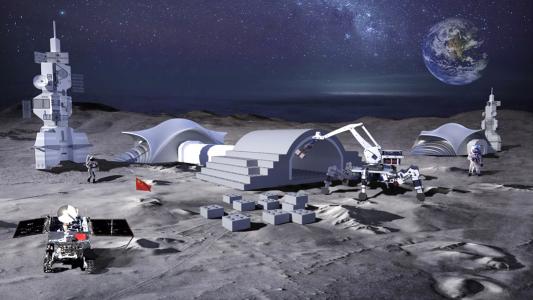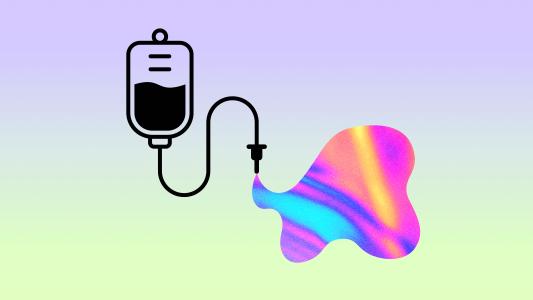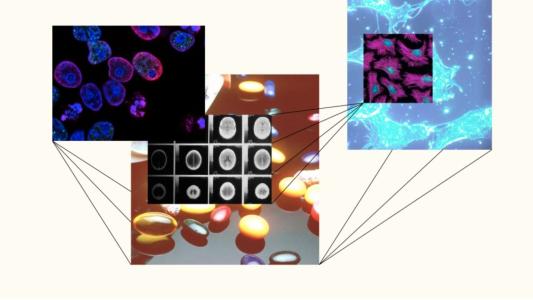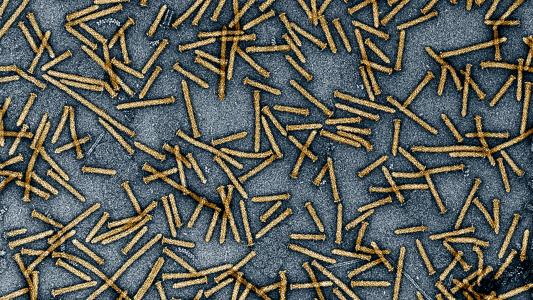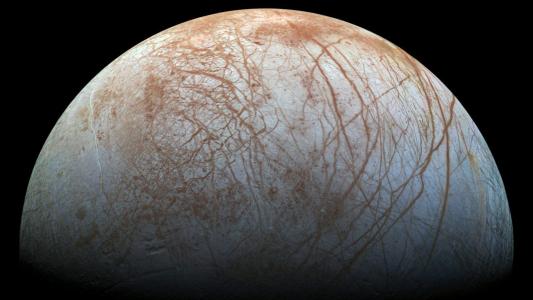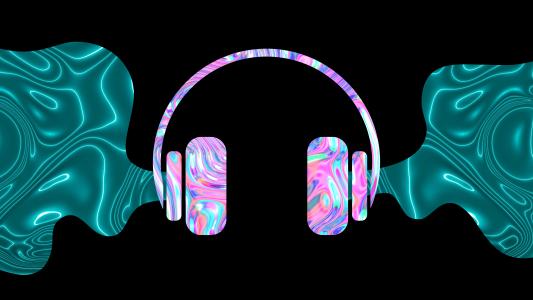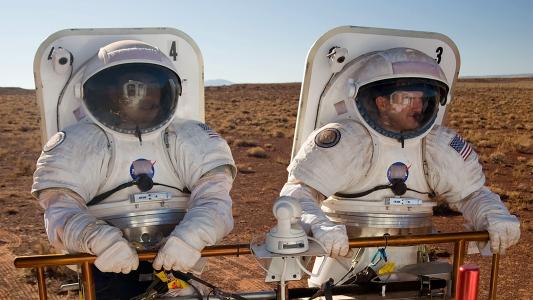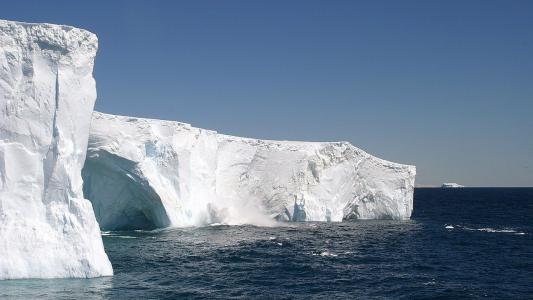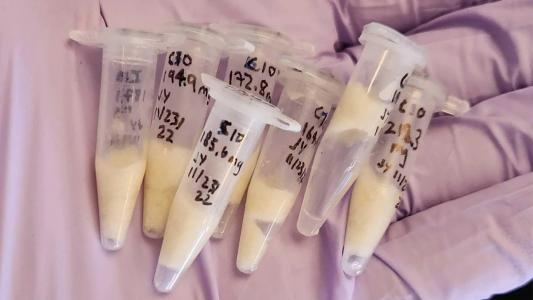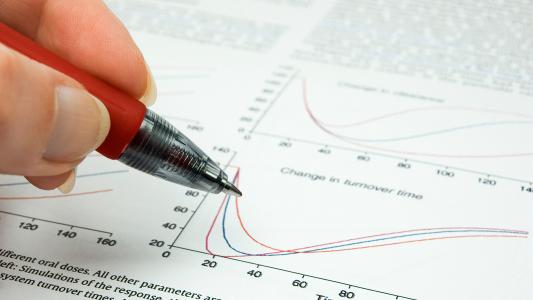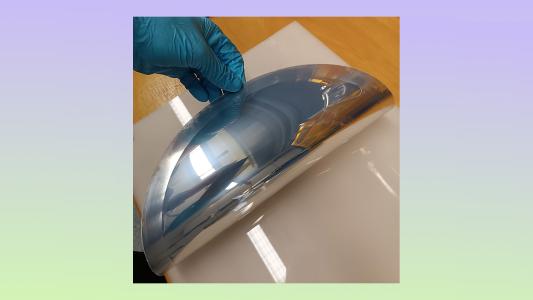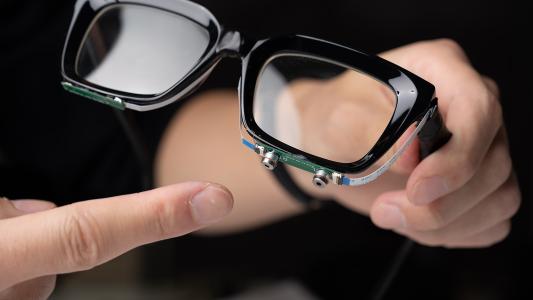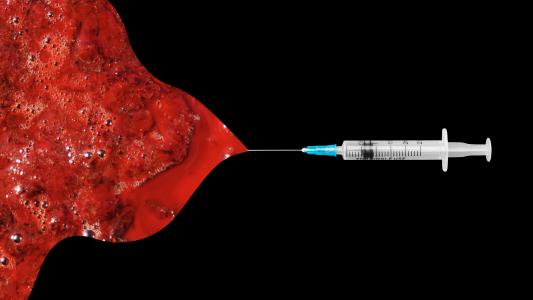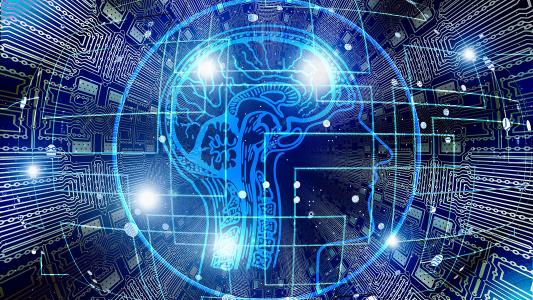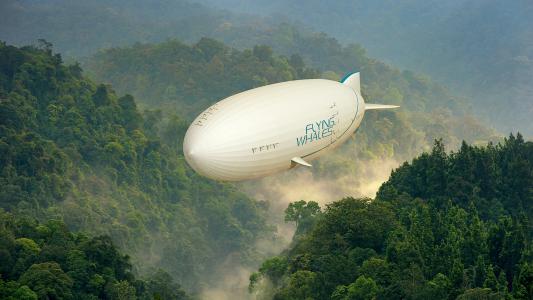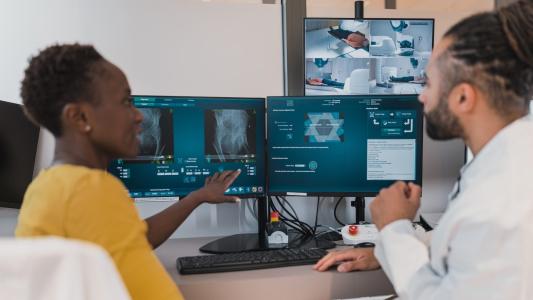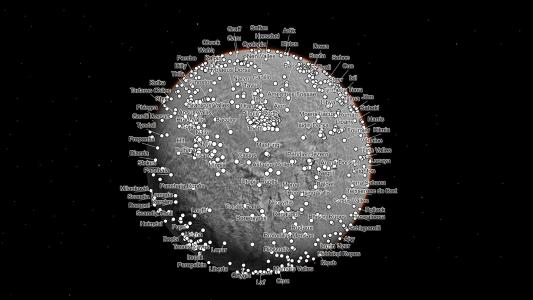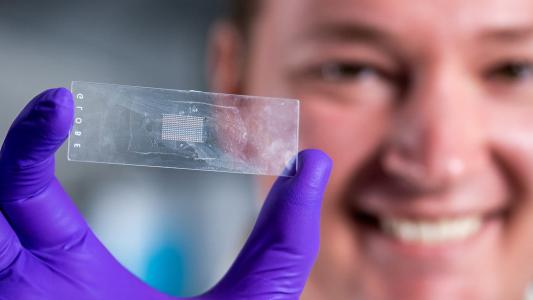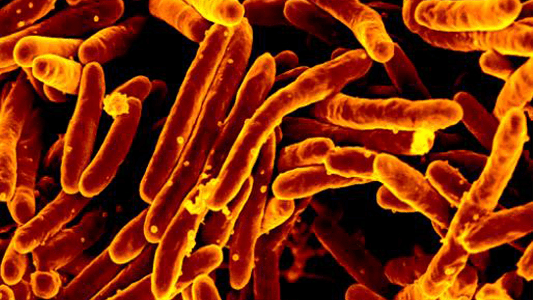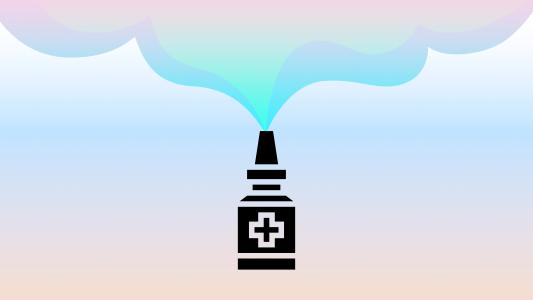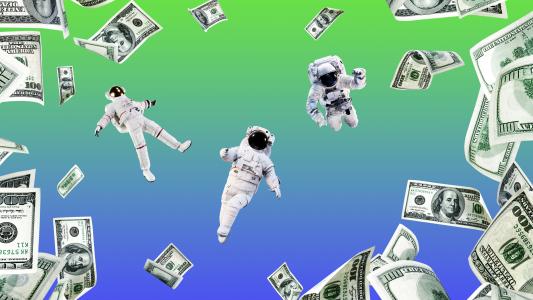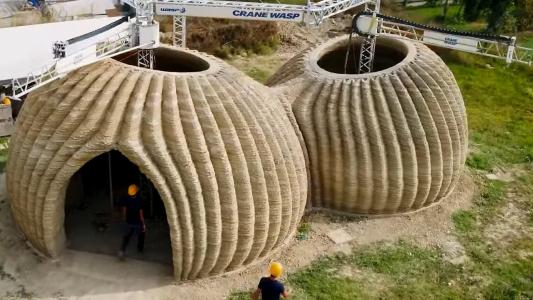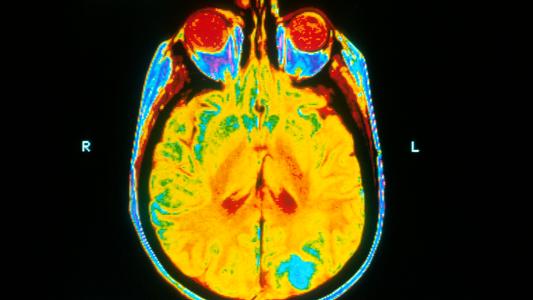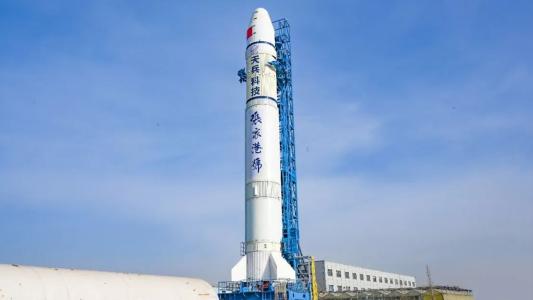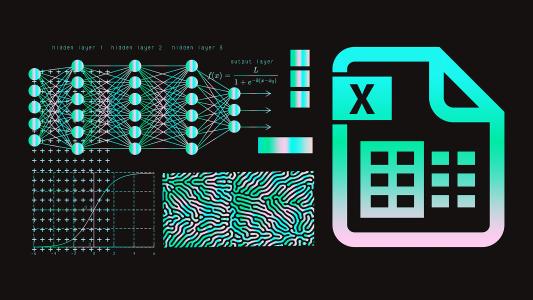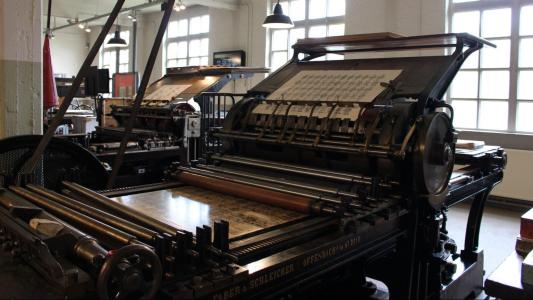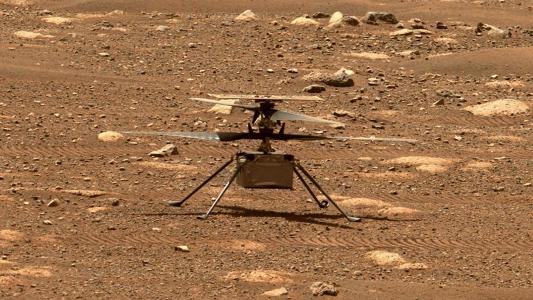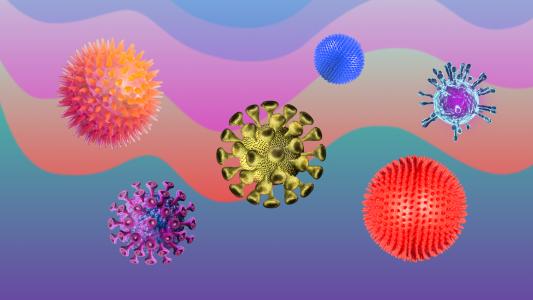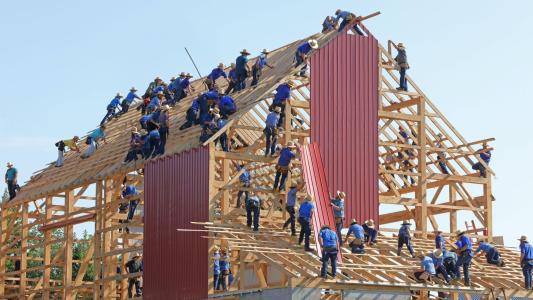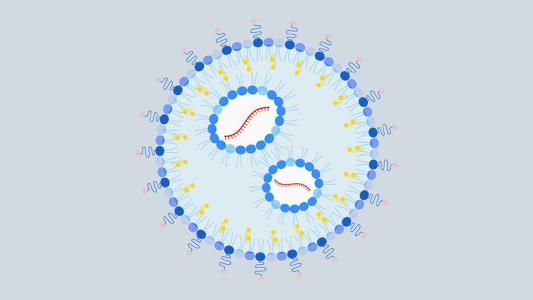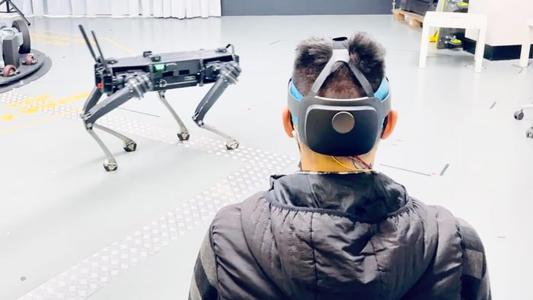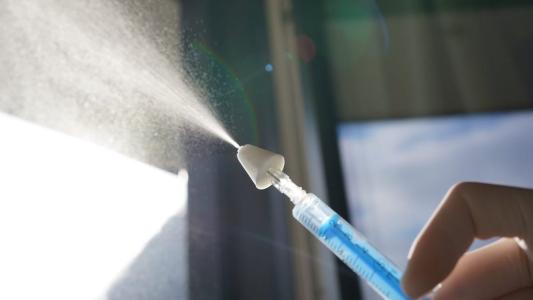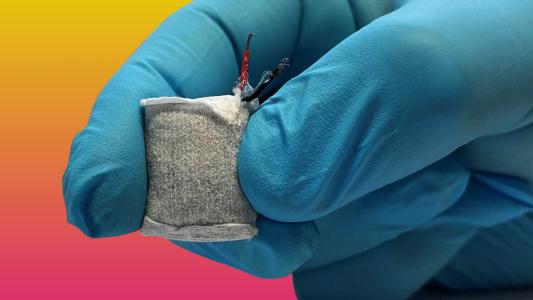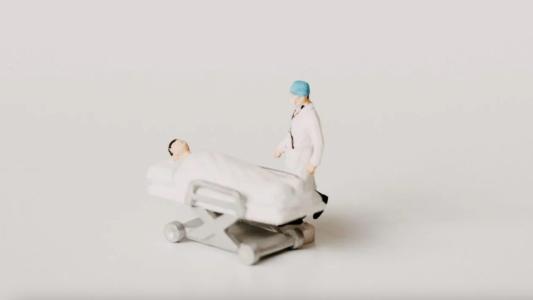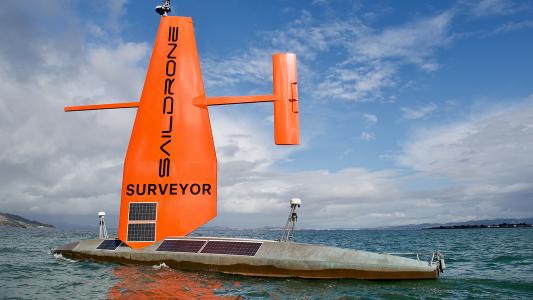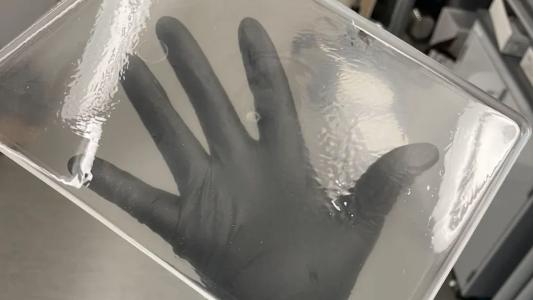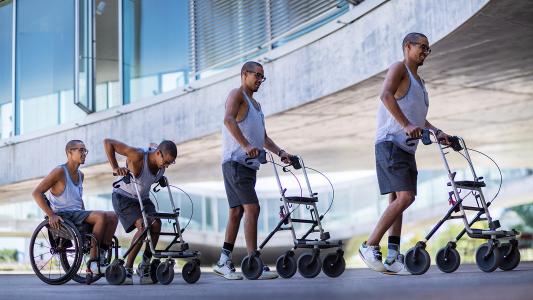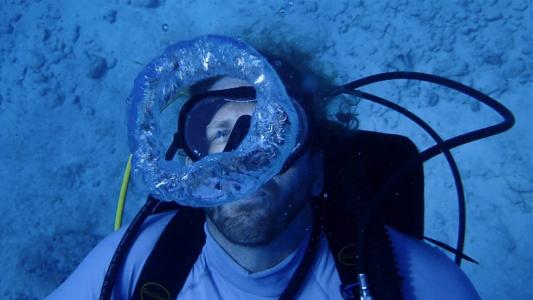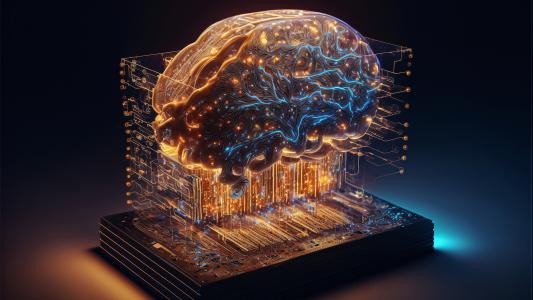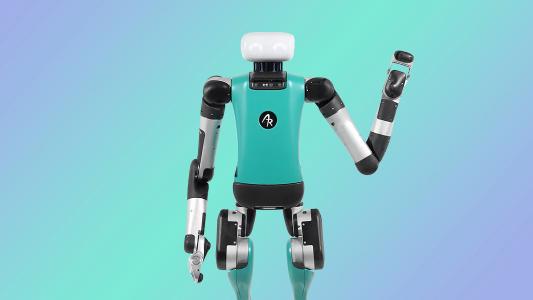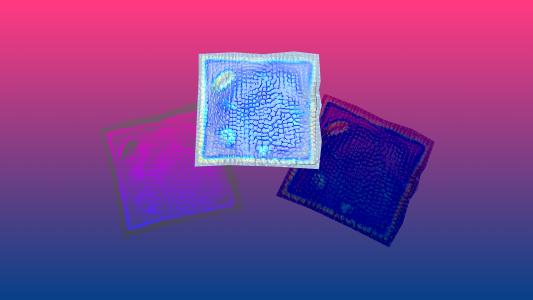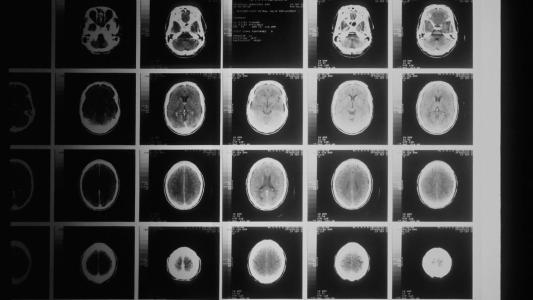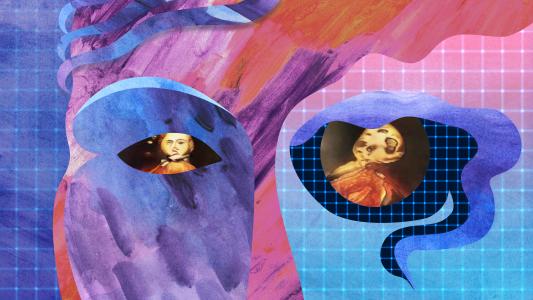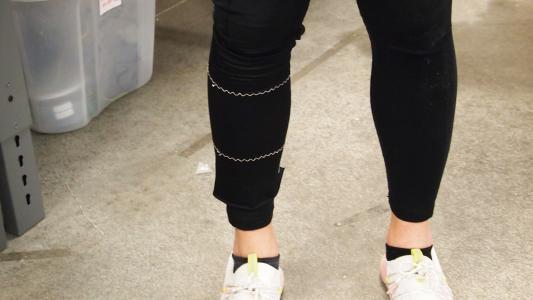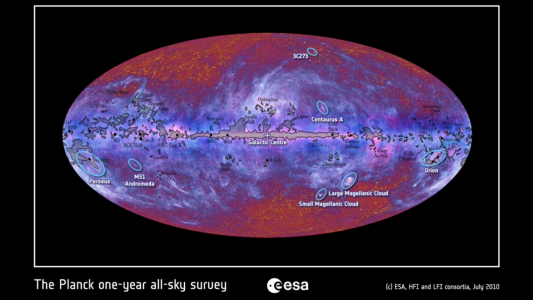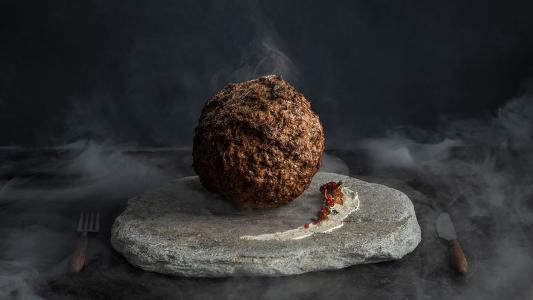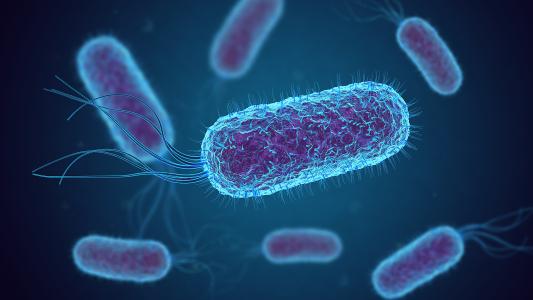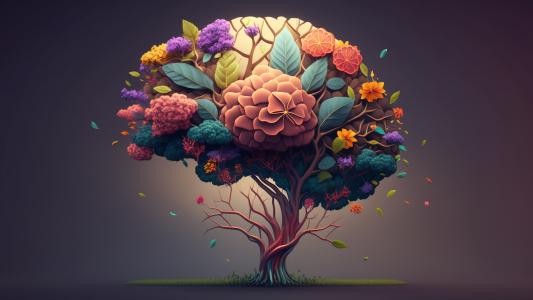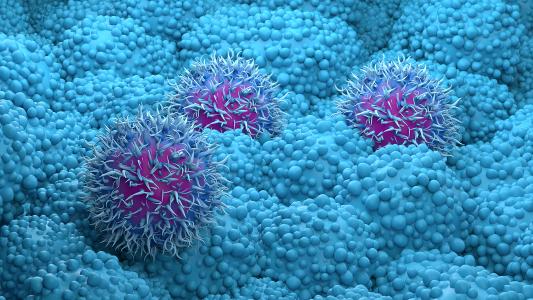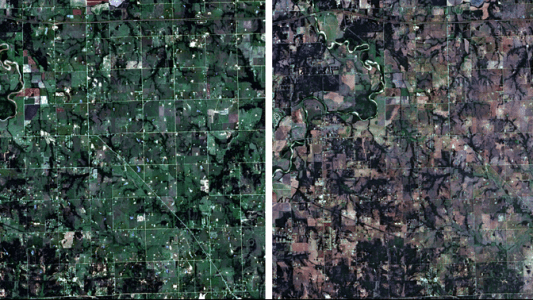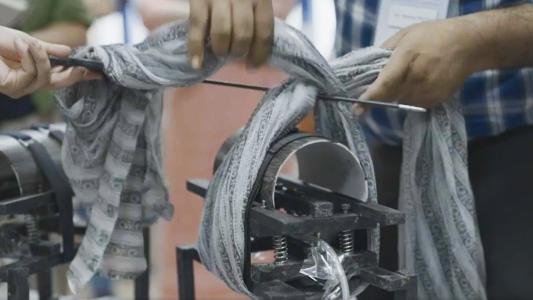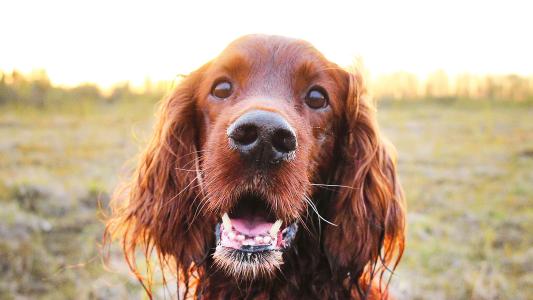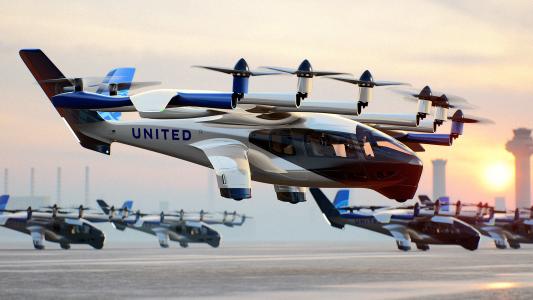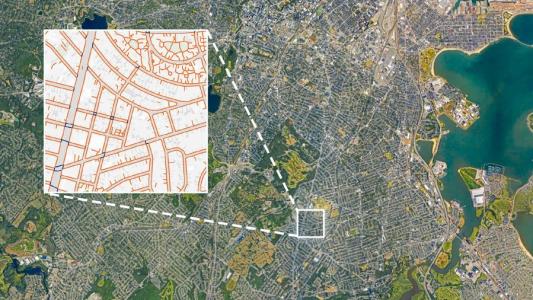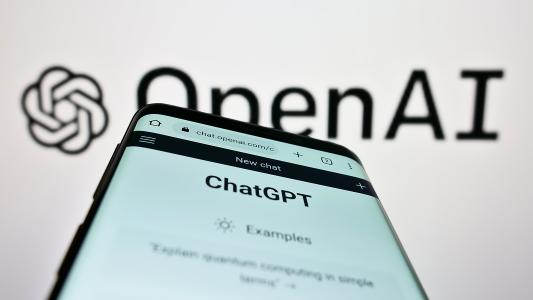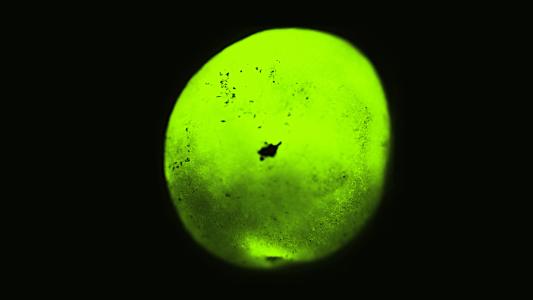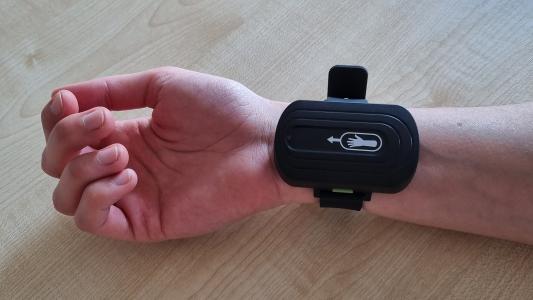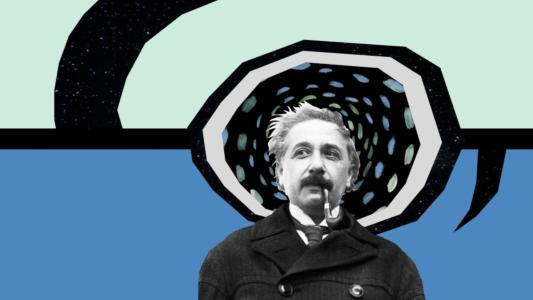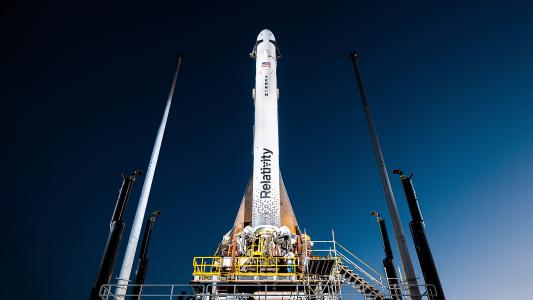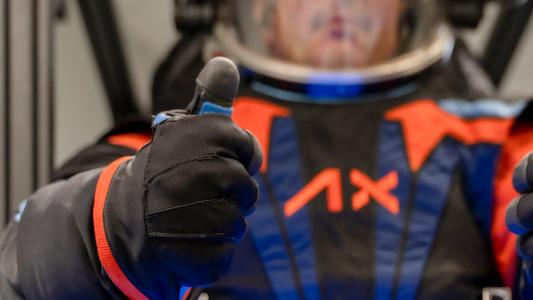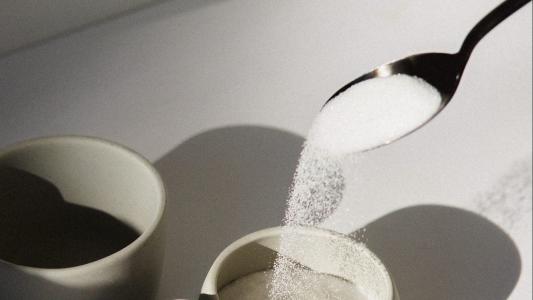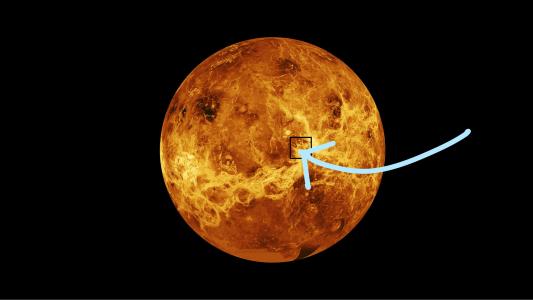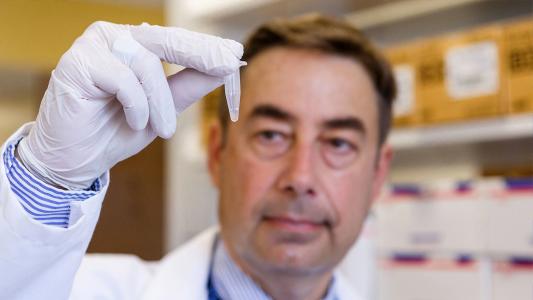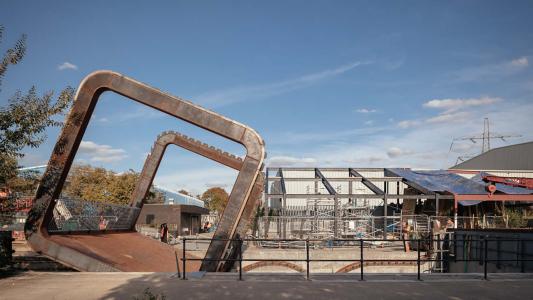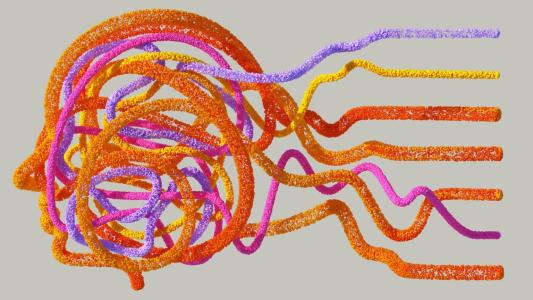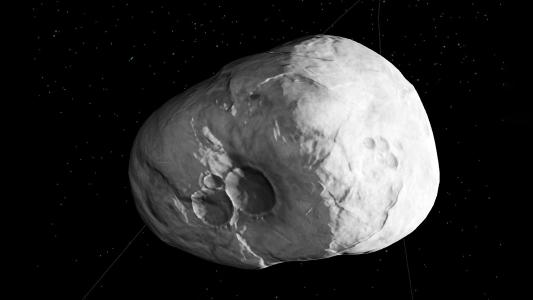Scientists figure out why tardigrades are nearly indestructible
Tardigrades have been frozen, boiled, exposed to extreme doses of radiation, and remarkably still survive. How?
Watch a rocket-powered spaceplane fly for the first time
After flying for the first time on March 29, Dawn Aerospace’s rocket-powered spaceplane, the Mk-II Aurora, flew again the very next day.
First Starship launch ends with a massive explosion
During SpaceX’s first Starship launch attempt, the massive spacecraft made it off the pad, but exploded before reaching space.
Scientists train ants to sniff out cancer in just 30 minutes
Ants were just as accurate as cancer-sniffing dogs. Better yet, they could be trained in minutes rather than months.
Study finds CPR patients may frequently have near-death experiences
In a study of CPR patients across the US and UK, researchers found new evidence about near-death experiences.
Nurses are breaking the mold to set out on their own
Tech platform Hydreight wants to help nurses go into business for themselves by being a turnkey solution.
China plans to build moon bases using robot masons and lunar dirt
China plans to start testing an ambitious plan to build moon bases using a robot mason and dirt bricks as soon as 2028.
DMT appears effective for depression up to six months later
Small Pharma has announced the results of a six-month follow-up for their phase 2a trial of DMT for depression.
Some cancers shouldn’t be treated
We're detecting and aggressively treating more tumors than ever before. But we're also over-treating more cancers then ever.
“Sunshine Calls” help depression and loneliness, study finds
A trial of “Sunshine Calls” found that the empathy-based phone calls helped reduce depression symptoms in older patients.
“Nanosyringes” can inject medicine into a single cell
MIT researchers have turned a system found in bacteria into programmable “nanosyringes” for injecting proteins into human cells.
Jupiter’s moons hide giant subsurface oceans
Three of Jupiter’s moons – Europa, Ganymede and Callisto – are home to large, underground oceans of liquid water that could support life.
Google’s AI music generator is like ChatGPT for audio
Google has unveiled MusicLM, an advanced AI music generator that can produce audio based on a short text description.
See inside NASA’s simulated Mars base for the first time
NASA has unveiled Mars Dune Alpha, a simulated Mars base where volunteers will live like Mars astronauts for a year at a time.
In the turbulent Drake Passage, scientists find a rare window where carbon sinks quickly into the deep ocean
The Drake Passage is one of the most turbulent ocean regions on Earth, but exploring it could help scientists understand how carbon sinks.
Lab-grown meat is about to get fatty
Tufts University has unveiled a new technique for producing lab-grown fat that could improve the taste and texture of cultured meat.
Scientists want to dump iron nanoparticles into the oceans to save the planet
Engineered nanoparticles could make ocean fertilization a viable weapon in the battle against climate change.
AI could rescue scientific papers from the curse of jargon
Scientific papers have been getting harder to read over time; AI might help reverse the trend.
Why “passkeys” are about to make passwords obsolete
A cybersecurity researcher explains how you can use your phone to make passwords a thing of the past.
New method could triple the size of space telescope mirrors
A new technique for making super-thin, lightweight space telescope mirrors could dramatically improve our view of space.
How ChatGPT “jailbreakers” are turning off the AI’s safety switch
Through clever prompts, OpenAI's red team and public "jailbreakers" are revealing the holes in GPT-4's guardrails.
Shutting down nuclear power could increase air pollution
If nuclear reactors are retired, polluting energy sources that fill the gap could cause more than 5,000 premature deaths.
New smart glasses use sonar to read your lips
New glasses use sonar sensing technology and AI to allow users to control devices via silent, mouthed commands.
One shot could stop severe bleeding and save thousands of lives
A potentially lifesaving treatment to stop severe postpartum hemorrhage could soon be more accessible to the people who need it the most.
AI chatbots don’t actually “know” anything. Can we fix that?
New AI models, called ALMs, could help chatbots stay connected to reality.
New battery tech boosts EV range by 20%
A new silicon anode material for EV batteries can boost a vehicle’s range by 20% while cutting down on charging times.
Macaque monkeys shrink their social networks as they age — just like elderly people
Macaque monkeys reduce their social networks as they get older – research suggests evolutionary roots of the same pattern in elderly people.
Xwing puts autonomous flight on the runway to approval
Autonomous flight startup Xwing has filed for approval to do crewless cargo flights, a first step towards pilotless commercial aviation.
One way to speed up clinical trials: Skip right to the data with electronic medical records
It takes around 17 years for medical research to translate into clinical practice — why not use EMR data to speed things up?
You can now explore the highest-res map of Mars ever made
Caltech researchers have created an interactive map of Mars that lets anyone explore the surface of the Red Planet in unprecedented detail.
New drug delivery tech could ensure you never forget your meds
Rice University's new drug delivery tech uses biodegradable microparticles to administer medications exactly when and where they are needed.
Tuberculosis kills over a million people a year. New breakthroughs may help humanity fight back.
The world needs a tuberculosis vaccine, but the challenge trials that could help are impossible to run. Two new approaches look to change that.
We used to have steam-powered cars. What happened to them — and will they come back?
Steam cars went extinct because gas-powered cars became far more convenient. Will technology ever bring back the steam car?
Nasal COVID-19 vaccine outperforms mRNA shots in new study
A live attenuated vaccine for COVID-19 that delivered via a nasal spray outperformed several shots in a preclinical study.
Space could be a trillion dollar industry by 2040
Now that falling launch costs are making space more accessible, hundreds of groups are looking for ways to make money off-world.
3D printing promises to transform architecture forever
Large-scale additive manufacturing, like 3D printing, involves building objects one layer at a time, transforming architecture as we know it.
Epilepsy surgery has a success rate of only 50%. This digital brain may change that.
Using patient data and AI, French researchers have created a digital model of the brain to figure out which brain region needs removed.
Chinese space startup makes history with first rocket launch
Chinese rocket startup Space Pioneer successfully reached orbit on its first try, something no private company has done before.
Excel may make chatbots much more useful
Math and logic are a weakness for chatbot AIs like GPT-4. Access to Excel may help change that.
People destroyed printing presses out of fear. What will we do to AI?
Just like today with AI, people worried about the printing press' effect on job security and the spread of disinformation.
NASA’s Mars helicopter breaks two records in a single day
On its 49th flight, NASA’s Mars helicopter, Ingenuity, soared higher and faster than ever before, setting two records in one day.
Viruses cause 200+ diseases. This one drug may be able to treat them all.
New Zealand-based startup Kimer Med wants to create an antiviral that would be effective against many known viruses — and unknown.
Why Earth is the only planet with plate tectonics
Here in our Solar System, of all the known planets, only Earth — not Mercury, not Venus, and not Mars — possesses plate tectonics.
The secrets of cooperation
Most people care what others think of them. In many situations, that can be leveraged for the common good — cooperation.
New mRNA therapy could bring an end to peanut allergies
A new peanut allergy treatment based on mRNA could potentially lead to therapies that prevent all types of allergies in people.
Graphene sensor could let you control robots with your mind
The “wonder material” graphene has been used to develop a dry sensor that could enable anyone to control technology with their minds.
ChatGPT can now help you plan a perfect vacation
Online travel agency Expedia has added ChatGPT to its app, giving users a free AI assistant to help them plan a vacation.
Narcan is now available over-the-counter in the US
Naloxone administered by nasal spray can be a lifesaving drug with minimal side effects. It's now approved for over-the-counter use in the U.S.
Standing on a vibrating platform could deliver some of the same benefits as exercise
The reason whole-body vibration training is gaining interest is because it’s far easier to do than regular exercise.
Study: If there is a maximum human lifespan, we’ve yet to reach it
The current record for longest life is likely to be broken in the coming decades, according to a new study on the maximum human lifespan.
Sugar-powered implant produces insulin as needed
A sugar-powered implant that produces insulin when blood glucose levels are high could make managing diabetes easier and less painful.
New lithium recycling method is cleaner and cheaper
A cheaper, cleaner lithium recycling method could help ensure we have enough of the valuable metal to power the clean energy future.
Death: how long are we conscious for and does life really flash before our eyes?
When does our consciousness disappear? And are we really flooded by memories in our final moments? Scientists hope to find out.
Drone discovers weird underwater volcano off California
An un-crewed sailing drone has discovered an unusually shaped underwater volcano, called a seamount, off California.
Researchers turned superglue into a recyclable, cheap, oil-free plastic alternative
Researchers discovered a way to turn superglue into strong, clear plastic that can be made into many shapes.
How close are we to reversing paralysis?
Thanks to groundbreaking innovations in neuroscience, we’re seeing that forms of paralysis long assumed to be permanent can be reversed.
This man is trying to live underwater for a record-breaking 100 days
Biomedical engineer Joseph Dituri is attempting to break a world record by living in an underwater habitat for 100 days.
Our new brains: neurotechnology advances that could change everything
Here are the latest developments in neurotech, from brain-computer interfaces to brain-inspired AI.
Humanoid robot Digit finally gets a head and hands
The newest version of Agility Robotics’ humanoid robot Digit has new body parts designed to make it more useful in workplaces.
Colorful film keeps houses and cars up to 20 F colder than the air
A colorful passive cooling film could help keep homes and cars cool without environmentally destructive air conditioning.
3D-printing the brain’s blood vessels with silicone could personalize neurosurgery
3D printing could make blood vessel replicas with the soft feel and the structural accuracy surgeons need.
Saliva: The next frontier in cancer detection
Scientists are finding tumor signals in spit that could be key to developing diagnostic tests for various types of cancer
A new AI lie detector reveals their “inner thoughts”
A new AI lie detector can dive into their hidden thoughts and reveal “what language models truly believe about the world.”
NASA funds first wearable to measure muscle atrophy
The first wearable designed to monitor muscle atrophy could help NASA astronauts stay strong during long space missions.
The strongest evidence for a Universe before the Big Bang
For many decades, people conflated the hot Big Bang, describing the early Universe, with a singularity: that this "Big Bang" was the birth of space and time.
Meatball made from woolly mammoth unveiled in the Netherlands
An Australian cultured meat startup has “resurrected” the woolly mammoth in the hope that people will think about eating it.
Harvard geneticists create an organism that is immune to all viruses
Researchers at the Harvard lab of George Church have genetically engineered E. coli resistant to viral infection.
Have scientists found a “brake pedal” for aging?
A new protein discovery may have highlighted a "switch" in brain cells that slows down inflammation and aging.
Spread of deadly cancer delayed by organ transplant drug
A groundbreaking discovery on how pancreatic cancer spreads could lead to better therapies for the hard-to-treat disease.
Detailed images from space offer clearer picture of drought effects on plants
Researchers are using remote sensing observations to build high-resolution systems to monitor drought from space.
ChatGPT: why it will probably remain just a tool that does inefficient work more efficiently
ChatGPT could do inefficient tasks more efficiently — but that doesn't answer the question of whether the tasks are worth doing at all.
How low-cost surgical training programs could save lives in low-resource countries
In partnership with Intuitive
Lack of access to surgery leads to millions of deaths every year around the world. Meet the innovators who are working to reduce this toll.
Dog “nose print” app is 99% accurate at ID’ing lost pets
An AI-based app that identifies dogs and cats based on their unique nose prints could help reunite lost pets and their owners.
United Airlines plans to bring flying cars to Chicago
United Airlines plans to use flying cars to ferry passengers between O’Hare International Airport and a location near downtown Chicago.
Open-source map could empower pedestrians in car-filled cities
Most cities don’t map their own pedestrian networks. Now, researchers have built the first open-source tool to let planners do just that.
Some ChatGPT plugins are coming very soon
OpenAI has announced that ChatGPT plugins, including ones for shopping, travel planning, and workflow optimization, will be rolling out soon.
New CRISPR tool reversed blindness in mice — permanently
A new CRISPR tool corrected a mutation causing retinitis pigmentosa in mice without making any significant off-target edits.
The tech of the year is entering the workforce
Generative AIs are being integrated into the programs millions of people use at work, but will they really make our jobs easier?
Technology over the long run: See how dramatically the world can change within a lifetime
Bringing to mind how dramatically the world has changed can help us see how different the world could be in a few years or decades.
Wristband device helps to control Tourette’s tics in clinical trial
A new wrist-worn device from the University of Nottingham uses electrical pulses to help curb Tourette syndrome symptoms.
Bird flu is everywhere. Are the vaccines ready?
As avian influenza continues to devastate the bird population and jump into mammals, scientists are preparing to protect two important groups.
Quantum entanglement just got a whole lot weirder
Normally seen with identical particles, entanglement has just been demonstrated between particles with opposite charges.
How Einstein tried to model the shape of the Universe
Two years after proposing his general theory of relativity, Einstein endeavored to find the shape of the Universe.
AI that turns docs into presentations is available right now — no waitlist
Fast-growing startup Tome has just released a first-of-its-kind tool that uses generative AI to turn your documents into presentations.
Mice grow mini deer antlers after stem cell transplant
The discovery of a new type of stem cell in deer antlers could lead to breakthroughs in human regeneration.
World’s first 3D-printed rocket launches at Cape Canaveral
Relativity Space has just launched the world’s first 3D-printed rocket, Terran 1, but the flight didn’t go exactly as hoped.
NASA unveils new spacesuits for upcoming moon mission
NASA and Axiom Space have unveiled the new spacesuits that will be worn by the first woman and person of color on the moon.
“Treasure map” guides scientists to massive meteorite
A “treasure map” highlighting places where meteorites are most likely to be found has led to the discovery of a 17-pound space rock.
What that study linking sugar-free sweeteners and heart disease really tells us
A new study links higher blood levels of sugar-free sweeteners, commonly found in ketogenic diet foods, to a greater risk of death.
Here’s how to get the best prompts for ChatGPT and image-generating AI
Using these basics of prompt engineering, you can get the most out of generative AI.
Venus may have currently active volcanoes
Old images from NASA’s Magellan mission may have revealed that Venus, a close analogue to Earth, has volcanic activity.
Science fiction books that predicted the future with terrifying accuracy
Science fiction writers have anticipated a variety of modern inventions, from cars to organ transplants. Some books barely seem like fiction.
The case for viewing depression as a consciousness disorder
A new hypothesis explains depression as an altered state of consciousness, which could help researchers make an objective diagnostic test.
There is now a blood test for anxiety disorders
A new blood test for anxiety may be able to help doctors diagnose patients and find effective treatments for them more quickly.
Watch: London’s “rolling bridge”
London’s unique Cody Dock “rolling bridge” can be moved by hand winches.
Large language models are biased. Can logic help save them?
MIT researchers trained logic-aware language models to reduce harmful stereotypes like gender and racial biases.
NASA cuts odds of asteroid impact on Valentine’s Day 2046
NASA and ESA have updated their odds of 2023 DW, an asteroid the size of an Olympic swimming pool, hitting Earth in 2046.
New voice cloning AI lets “you” speak multiple languages
Voice cloning AIs are gaining more abilities, while the amount of audio needed to replicate a person’s voice is shrinking.
As bird flu spreads in the US and worldwide, what’s the risk that it could start a human pandemic?
Many virologists are concerned that the latest bird flu outbreak could spill over to humans and cause a new human pandemic.
